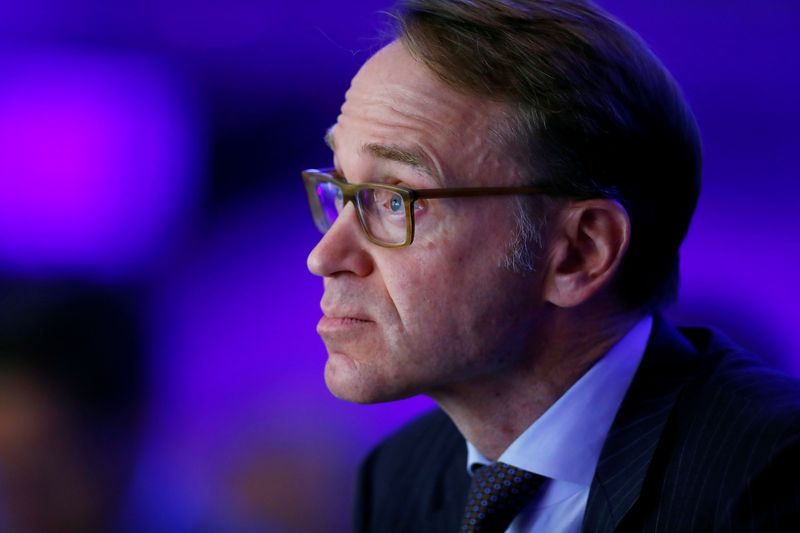BERLIN/FRANKFURT (Reuters) – Bundesbank chief Jens Weidmann defended the European Central Bank’s bond purchases in the face of criticism from some German lawmakers in a culmination of efforts to defuse a stand-off with Germany’s top court over its policy, sources said on Wednesday.
Weidmann spoke to the lawmakers in a closed-door session via a video-link and answered questions for nearly two hours, four participants told Reuters, adding that his remarks helped to dispel doubts over the proportionality of the ECB’s measures.
His appearance marked the climax of efforts to overcome a constitutional crisis in Europe’s largest economy that had threatened to upend monetary policy in the 19-nation euro zone.
Most parliamentary groups view the issue as solved by now. Only the far-right AfD party, which has lost popular support over the past months, has vowed to continue the legal fight against the ECB’s measures.
Weidmann rejected the assertion that Germany’s highest court had ruled earlier this year that the ECB’s Public Sector Purchase Program (PSPP) represented monetary financing of governments, the participants said on condition of anonymity.
Weidmann extended his defence to the ECB’s latest bond-buying scheme, the Pandemic Emergency Purchase Programme (PEPP), saying that so far, he could not see an “obvious violation” of the ECB’s rule to stay clear of monetary state financing, the sources added.
But he added a note of caution by telling lawmakers that the desired impact of the measures and their side effects had to be constantly monitored and weighed up against each other, the sources said.
More generally, Weidmann repeated his stance that the ECB should interpret its mandate rather narrowly to guarantee its independence as there was a risk of monetary policy getting politicised, the sources said.
The Bundesbank declined to comment.
Germany’s top court ruled earlier this year that lawmakers failed to exercise appropriate control over the Bundesbank, which must quit the ECB’s government bond purchase programme unless it could justify its participation.
The early May ruling threatened to force the euro zone’s biggest central bank to withdraw from a stimulus scheme credited with helping underpin growth before the coronavirus struck and averting a financial crisis amid the pandemic.
Since that ruling, the ECB has sent a justification of its 2.3 trillion euro Public Sector Purchase Programme to the German government and parliament, which was accepted by Berlin.
The Bundesbank has also agreed to participate in regular hearings billed as “monetary dialogue,” modelled after similar meetings held for the ECB President by the European Parliament.
Still, the ECB faces a fresh legal challenge after lawmakers for the AfD party last month filed a complaint against the ECB’s Pandemic Emergency Purchase Program (PEPP), claiming that the scheme exceeds the ECB’s mandate.
The 1.35 trillion PEPP was launched earlier this year at the height of the coronavirus crisis to keep borrowing costs down and prevent the pandemic from morphing into a sovereign debt crisis.
(Reporting by Michael Nienaber and Balazs Koranyi; Editing by Hugh Lawson and Chizu Nomiyama)

























